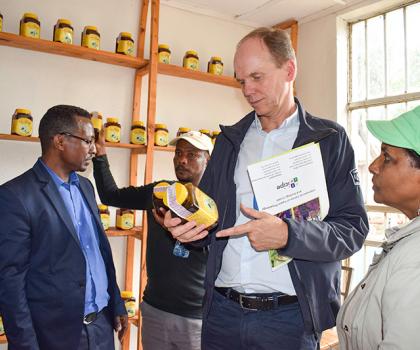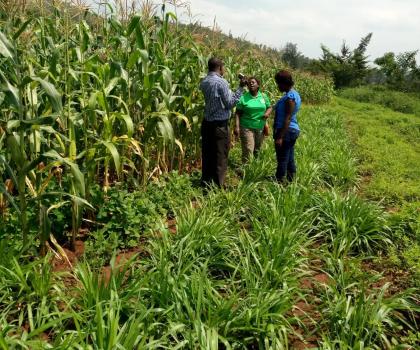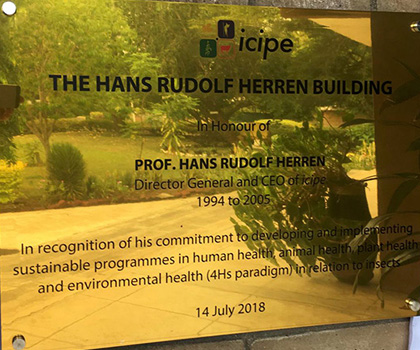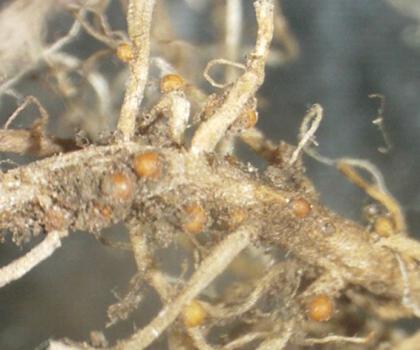News and Events

Beekeeping in Ethiopia: icipe-EU partnership
The number of Ethiopian farmers using modern beekeeping technologies introduced by the International Centre of Insect Physiology (icipe), has increased eight-fold over the past seven years, from just 120 in 2011 to 900 by end of 2017. Significantly, more than one third of these farmers are women, in a country where beekeeping is traditionally considered a male-only occupation.

icipe Push-Pull in Rwanda
In December 2017, the highly innovative Push-Pull technology was officially launched in Rwanda. As of May 2018, 4745 farmers have been trained, and close to 240 farmers have adopted the technology. Below is a chronology of events regarding the dissemination of Push-Pull in Rwanda.
Fall armyworm in Rwanda
One morning in April 2017, in the middle of what is referred to in the country as agriculture season B, which starts in March and ends in April, farmers in Rwanda woke up to a strange phenomenon in their maize plots. The leaves of their barely knee high crop were completely tattered, as if hit by a hailstorm.

icipe honours Dr Hans Herren
15 July 2018, Mbita Point, Kenya: icipe has honoured the Centre's former Director General, Dr Hans Rudolph Herren, for his enduring commitment to supporting the Centre's mission; and his vision of the role of science-led development for sustainable, socio-economic transformation in Africa.

All about nematodes
Root-knot nematodes, a highly destructive group of soil dwelling worms that infect most, if not all cultivated crops, are probably one of the greatest threats to agriculture in SSA. Therefore, for the region’s food security goals to be achieved, these pests, alongside other nematode species, must be wholly integrated into efforts to improve agricultural productivity. Encouragingly, slow but steady progress made over the past 20 years indicates an optimistic outlook for an otherwise daunting endeavour.
